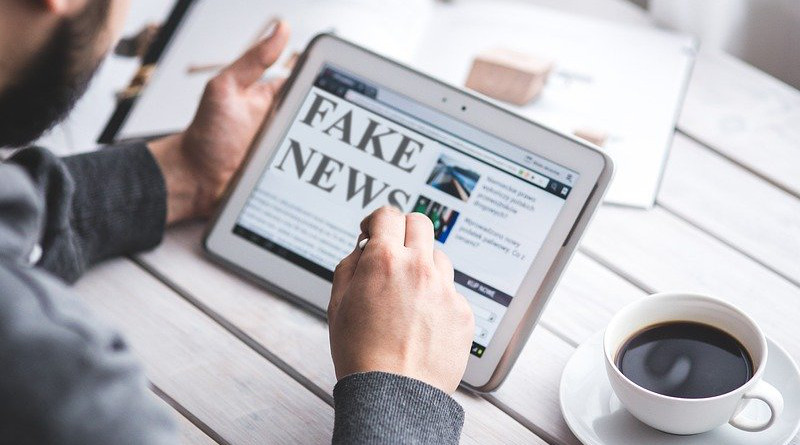The Term Fake News Has Myriad Meanings – OpEd
In 2007 the term fake news was chosen as the word of the year, but this wide adoption was accompanied by a lot of vagueness, pushing us to pause and think if we are all talking about precisely the same concept. A close analysis reveals the word has, in practice, myriad meanings that sometimes overlap, and many other cases differ a lot.
Consider the following definitions by different actors in society for the exact fake news term:
Dictionaries: Probably many of us refer to dictionaries to find the meaning of any new word, but humans create dictionaries, a group of experts called lexicographers, who are tasked to decide what words should be included, and how they are defined; hence the expectation for disagreement is valid, Cambridge dictionary, for instance, has a general definition that doesn’t go into the details of the intention of the fake news creator, by contrast, oxford dictionary puts a condition in its definition to the term that it’s deliberately misleading misinformation, dictionary.com takes into the account the sensation nature and money incentive and discrediting the political and public figure, it also includes parody and satirical content in the definition, Collins dictionary has a concise definition that equates the term fake news with the false one. Any reader checking all these dictionaries will get different meanings, albeit the term is one.
Researchers: With the rise of disinformation, some researchers dedicated themselves to studying the phenomenon and analyzing how it spread; having a solid and clear definition is considered one of the most essential steps in any field. A landmark paper titled the science of fake news defines fake news as fabricated content that tries to mimic real news. The paper differentiates fake news from other forms of information disorder such as disinformation and misinformation, although it overlaps with them. Some researchers add inaccurate information, while others refrained from using the term because it’s inadequate and misused by politicians worldwide. These researchers adopted a detailed conceptual framework instead to understand the complexity of fake news.
Encyclopedias: To get a quick yet still accurate definition of any issue or concept, we refer to Encyclopedias; Wikipedia, the well-known online and free Encyclopedia, defines fake news as false or misleading information presented as news, but the Encyclopedia admits that it’s hard to have a fixed definition, The encyclopedia Britannica, as opposed to Wikipedia, does not put any definition to the term and uses the term hoax instead.
Governments laws: In their effort to regulate fake news content, governments had to define it, the proposed french fake news act defines the term as “Inexact allegations or imputations, or news that falsely report facts, intending to change the sincerity of a vote.”, The Russian government approved a fake news law that uses the word “ unreliable information ” to define what is considered fake news. Needless to say that governments tend to pass laws with vague definitions to intimate citizens and journalists.
Artificial Intelligence systems: Recent developments in large language models let humans access large amounts of knowledge through question answering interface; when asked to define fake news, OpenAI’s ChatGPT will answer, “Fake news refers to the spread of false or misleading information, often presented as legitimate news, to deceive readers and influence their opinions. This can take many forms, such as fabricated articles, manipulated images, or even entire websites designed to look like real news outlets. Fake news is a problem because it can lead to the spread of misinformation, which can have severe consequences for individuals and society as a whole.
Ordinary people: The vast majority of society is represented by ordinary people; they have their definition of fake news, which is not unified and agreed upon by all. A 2017 Gallup/Knight Foundation that surveyed more than 19,000 U.S. adults aged 18 and older revealed that participants are radically different in their views defining what constitutes a fake news story, for example, when asked if someone knowingly portrayed false misinformation as accurate, if this is a piece of fake news or not? 48% said yes to that’s always fake news, while 46% reported this is sometimes the case.
Politicians: Fake news as a term was used by some politicians to attack the credibility of the public media and to mean anything and nothing at all. A perfect example is Donald Trump’s fake news prize which he awarded to news channels such as CNN and Washington Post.
All these previous definitions expose the simple idea that we have differing views on one well-defined term. These differences could be because of the decentralized nature of language; what’s important here is for us as individuals to be flexible enough to navigate through all these definitions and frameworks. Analyzing these differences will help us understand the phenomenon and better communicate about it in our quest to find solutions at a collective level.

